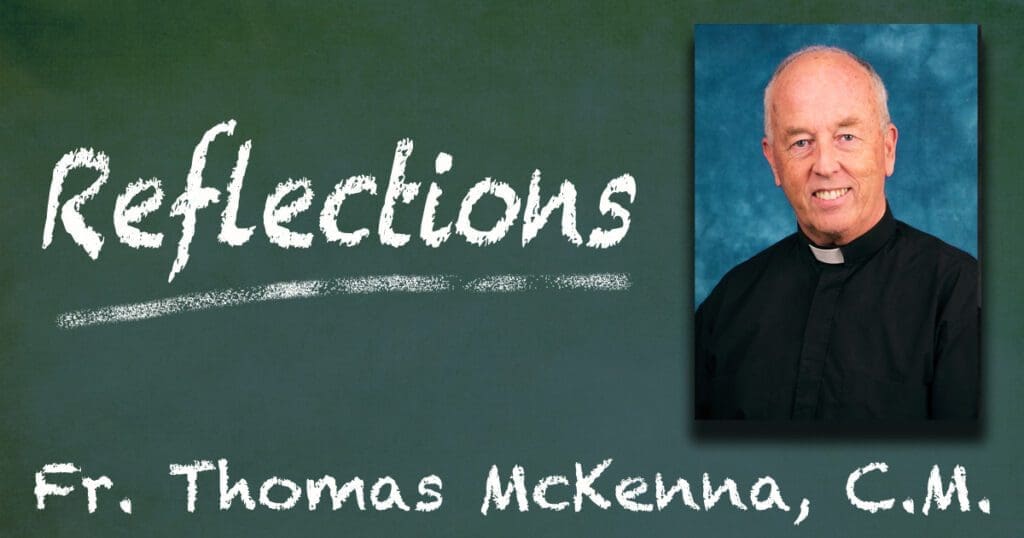Two people are in a conversation, asking how they feel about each other. After much back and forth, one says to the other, “How would you name that feeling?” And as you might suspect, the conversation heads off in a thousand directions, trying to put a name on such an elusive reality.

If searching to name a feeling is such a challenge, imagine what it’s like to try to name God, to find the right words to describe the One who is the reality and mystery behind all creation and who in fact is life itself.
In Exodus (c 34), the Jewish people have just been rescued from slavery in Egypt. With that deliverance, they imagined they had a name for their God: the Rescuer. But in a short time, their focus wavered and they shifted to another name; i.e., an Idol, alongside the many others their neighbors worshipped.
At that juncture God, speaking through Moses, discloses something more of his identity, or we might say, once again names Himself. “I am merciful and gracious, slow to anger, rich in kindness and fidelity.” This depiction refocuses how the people see, feel, and name God — not vindictive and punishing as with the surrounding idols, but rather as all merciful and forgiving.
For generations since, the issue has been the same: how do we “name” God? How do it in the depths of our own feelings, in the far reaches of our hearts? This is to get at not so much a catechism definition, but rather our bareboned, instinctual feel for who God is for us. And as with those ancient Hebrews, it’s a pursuit to which we have to keep returning, this allowing God’s Own Self to speak to us anew in order to correct our inner sense of who the Divine is for us, to refocus our name for God.
The message of Holy Trinity Sunday issues the challenge once more. Do I experience God as merciful and gracious, rich in kindness and mercy? Or is God someone other – a distant ruler, a powerful but non-involved creator? And further, citing that famous text in John’s Gospel (“3:16: read it!”), do I experience God as the one who, in his Son Jesus Christ, is giving us his very own Self, God who out of love has taken up our human and creaturely existence and walks with us in the everyday.
And so back to our question: how do we name God? In our deep down reactions and instincts, what inner image do we have of the Divine? Like the Hebrew people listening to God through Moses, and like those early Christians seeing God on the face of Jesus Christ, do we open ourselves to an ever intensifying sense of who God is for us. Can we allow that inner name we have for God to keep on deepening and expanding, never to let ourselves be content with what we already know?
We worship a God who is always greater, greater than any ideas, more expansive than any of the names we give God. But a God who, in love, is always coming, and calling us into his welcoming arms.
In a letter to one of his confreres, Vincent echoes this counsel to begin anew “… on God’s road, not to advance is to fall back since man never remains in the same condition. (Volume: 2 | Page#: 146) To Étienne Blatiron, In Alet, 9 October, 1640 added on 6/28/2011







Fr. Tom
Thank You – we can always count on Pere Vincent – echoes of my immigrant grandmothers’ similar refrain to me “Sempre Avanti.”🙏
Joe Bellacosa